According to the Hanoi Center for Disease Control (CDC), last week the city recorded 234 cases of dengue fever, distributed in 28 districts (a decrease of 40 cases compared to the previous week).
Among them, districts recorded many cases such as: Dan Phuong with 63 cases; Thanh Oai with 22 cases; Phuc Tho and Ha Dong - each with 15 cases.
In addition, the communes and wards with many cases are Phuong Dinh commune (Dan Phuong district) with 29 cases; Dong Thap commune (Dan Phuong district) with 7 cases; Hong Duong commune (Thanh Oai district) with 7 cases; Duong Noi ward (Ha Dong district) with 6 cases.
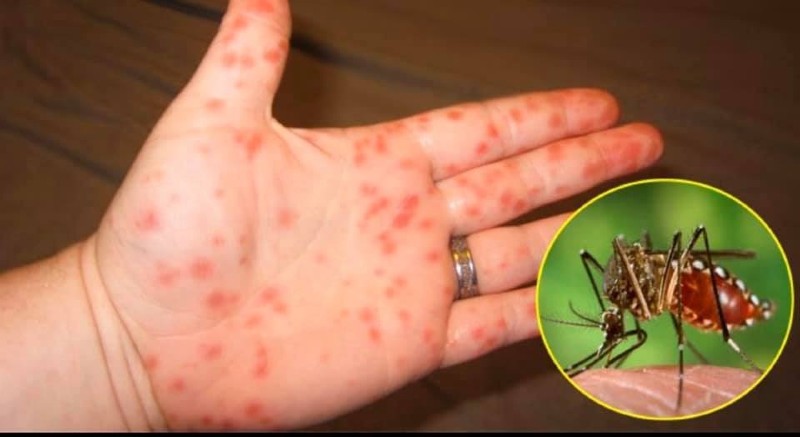 |
| Illustration photo. |
Accumulated from the beginning of 2024 to now, the number of dengue fever cases in the whole city is 2,284 cases, down 59% compared to the same period in 2023.
Regarding outbreaks, last week 17 dengue fever outbreaks were recorded in the following districts: Dan Phuong, Phuc Tho, Hoan Kiem, Thanh Oai, Ba Vi, Chuong My, Dong Da, Dong Anh, Thach That and Thuong Tin (an increase of 2 outbreaks compared to the previous week).
Accumulated from the beginning of 2024 until now, Hanoi has recorded 104 dengue fever outbreaks. Currently, there are 34 active outbreaks. Hanoi CDC assessed that with the current hot and rainy weather conditions, mosquitoes that transmit dengue fever are likely to arise if environmental sanitation measures to kill larvae and spray chemicals to kill mosquitoes are not thoroughly implemented.
Over the past week, the Hanoi CDC has coordinated with relevant units to monitor, investigate, and handle epidemics in areas with active cases and outbreaks. Thereby, larvae nests were recorded in many tools such as: open tanks, scrap tires, flower pots, buckets, basins, jars, etc.
Dengue fever prevention and control will continue to be strengthened next week. Specifically, the Hanoi CDC will continue to monitor areas where dengue fever outbreaks are active.
Along with that, the Medical Centers of districts, towns and cities focus resources on thoroughly handling epidemic areas; organize spraying of chemicals to kill mosquitoes to ensure a high rate of thorough spraying; implement environmental sanitation and kill larvae in high-risk areas with high insect index.
According to the World Health Organization (WHO), the incidence of dengue fever has increased 30-fold over the past 50 years. It is estimated that there are about 50-100 million cases of dengue fever each year in 100 countries where the disease is endemic.
The global economic burden of dengue is estimated at US$8.9 billion annually, with 40% of this economic loss resulting from lost productivity, when patients are absent from work or hospitalized.
Every year, Vietnam has hundreds of thousands of infections and dozens of deaths due to dengue fever in children and adults. However, for many years there has been no vaccine to prevent it, and measures to control the source of infection such as destroying the intermediate mosquitoes that transmit the disease have encountered many difficulties.
According to statistics from the Ministry of Health, in 2023, the country recorded more than 172,000 cases of dengue fever, 43 of whom died. Dengue fever has 4 serotypes that cause the disease, and does not create cross-immunity, so each person can get the disease 4 times in their life and the subsequent infections will be more severe due to the influence of cross-immune complexes.
If not given timely emergency care and treatment, patients, especially high-risk groups such as children, pregnant women, people with chronic diseases, and obesity, may experience dangerous complications such as hypotension, heart failure, kidney failure, hemorrhagic shock, multiple organ failure, cerebral hemorrhage, coma, etc. For pregnant women, dengue fever can cause fetal distress, premature birth, stillbirth, etc.
In Vietnam, vaccines against dengue fever, shingles, and 23 strains of pneumococcus are among a total of 40 drugs, vaccines, and biological products approved for use in Vietnam by the Drug Administration of Vietnam (Ministry of Health) on the afternoon of May 15, 2024.
However, there is still no vaccine for dengue fever, so the only way to prevent the disease is to limit mosquito bites and mosquito breeding sources.
There is currently no specific treatment for dengue fever, mainly treating symptoms and monitoring warning signs. Patients need to be hospitalized when they have one of the following signs: mucosal bleeding, bleeding from the teeth, nose, or digestive tract; abdominal pain in the liver area; severe vomiting; rapid decrease in platelet count and concentrated blood; and little urine.
With dengue fever, there are mistakes in treatment that make the disease worse that people need to avoid at all costs. Accordingly, the symptoms of dengue fever are easily confused with common viral fever, making patients subjective and the disease easily becomes worse, causing many complications, even endangering life.
Dengue fever is divided into 3 levels: Mild, with warning signs and severe. Patients often subjectively do not go to the doctor but self-treat.
In mild cases, patients may be advised to monitor at home but still need to go to the doctor for diagnosis, treatment and close monitoring.
In severe cases, the patient may experience dangerous complications such as internal bleeding, brain damage, liver and kidney damage, and even death if not detected promptly.
Most patients mistakenly believe that once the fever is gone, they are cured because the fever goes down and the body feels more comfortable. However, in reality, the most dangerous stage is after the high fever stage.
At this time, the patient needs to be closely monitored by the doctor and have absolute rest, limit heavy exercise and travel a lot because after 2-7 days, platelets can decrease severely and plasma can escape, the patient may experience symptoms of subcutaneous bleeding, nosebleeds, etc.
Depending on the severity and complications of the disease, it can lead to internal bleeding, pleural effusion, gastrointestinal bleeding, dengue shock, and even death.
Dengue fever patients often have a high fever continuously, so to reduce the fever quickly, they take fever-reducing medicine without following the correct dosage instructions.
There are even many cases of using the wrong antipyretic drugs such as using aspirin and ibuprofen instead of paracetamol, leading to more serious bleeding in the patient, possibly severe gastric bleeding, which is life-threatening.
Many people think that mosquitoes that transmit dengue fever only live in stagnant public water, sewers, etc.
However, Aedes mosquitoes live in places where water has been left for a long time, such as aquariums, flower vases, rockery, rainwater stagnant in broken bowls in home gardens, alleys, terraces, construction sites, etc. Therefore, it is necessary to remove stagnant water containers that are places for Aedes mosquitoes to breed and develop.
To avoid dengue fever transmission by mosquitoes, many people think that it is okay to spray insecticide at any time. However, the first step to kill mosquitoes is to clean the house, turn over all mosquito hiding places to kill larvae, then spray insecticide to kill adult mosquitoes.
To effectively kill this mosquito, spray in the morning. Because dengue mosquitoes are active during the day, they are strongest in the early morning and before sunset. It should be noted that insecticide sprays are effective for 6 months from the time of spraying.
Many people believe that once they have had dengue fever, they will not get the disease again. This is not necessarily true. Because dengue fever is caused by the Dengue virus, which has 4 strains: DEN-1, DEN-2, DEN-3 and DEN-4. All 4 strains of this virus are capable of causing the disease.
Therefore, if a person has had dengue fever, during the illness the body can create antibodies. However, the immunity created is only specific to each individual strain. The patient may not be reinfected with the old virus strain but can still be infected with the new strain, so dengue fever can recur.
Many people think that when having dengue fever, you should only drink electrolyte replacement drinks and not drink coconut water because it does not have the effect of rehydrating and it is difficult to detect complications.
This is completely wrong, in dengue fever, high fever for several consecutive days will cause the patient to lose water and fluid. The simplest way to compensate for fluid loss is to give the patient Oresol.
However, many patients have difficulty drinking Oresol. This can be replaced by drinking coconut water, orange juice, grapefruit juice, lemon juice to compensate for the lost fluid. Moreover, the above fruits contain many minerals and vitamin C, which help strengthen the immune system and increase the strength of blood vessels.
Many parents have the wrong treatment when their children have dengue fever. When they see bruises on their children, they think that they have to cut the wound to remove some of the toxic blood so that they will recover quickly.
This can lead to uncontrollable bleeding. This is an entry point for bacteria, which can cause life-threatening blood clotting disorders in children.
Source: https://baodautu.vn/ha-noi-dich-sot-xuat-huyet-co-xu-huong-giam-d223314.html


![[Photo] Students of Binh Minh Primary School enjoy the full moon festival, receiving the joys of childhood](https://vphoto.vietnam.vn/thumb/1200x675/vietnam/resource/IMAGE/2025/10/3/8cf8abef22fe4471be400a818912cb85)



![[Photo] Prime Minister Pham Minh Chinh chairs meeting to deploy overcoming consequences of storm No. 10](https://vphoto.vietnam.vn/thumb/1200x675/vietnam/resource/IMAGE/2025/10/3/544f420dcc844463898fcbef46247d16)





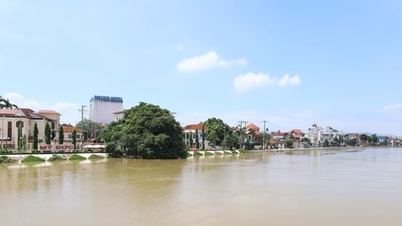





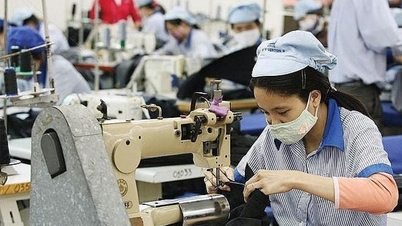






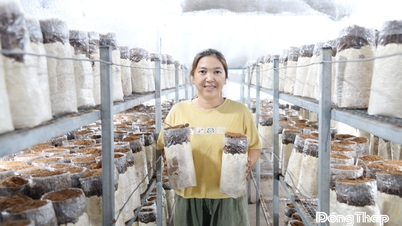






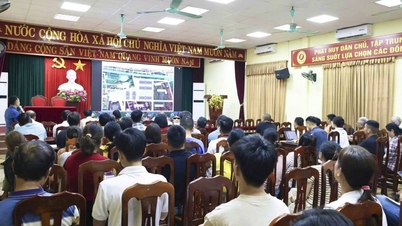
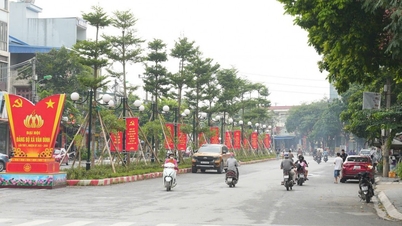






















































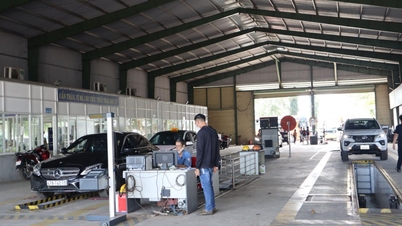


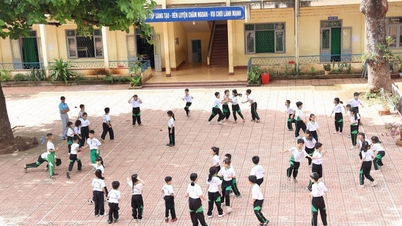














Comment (0)